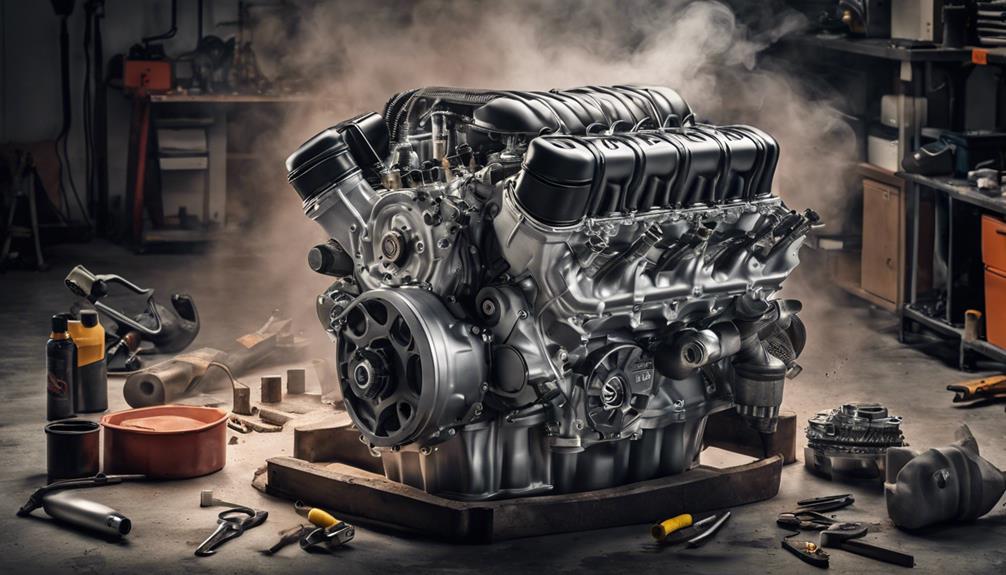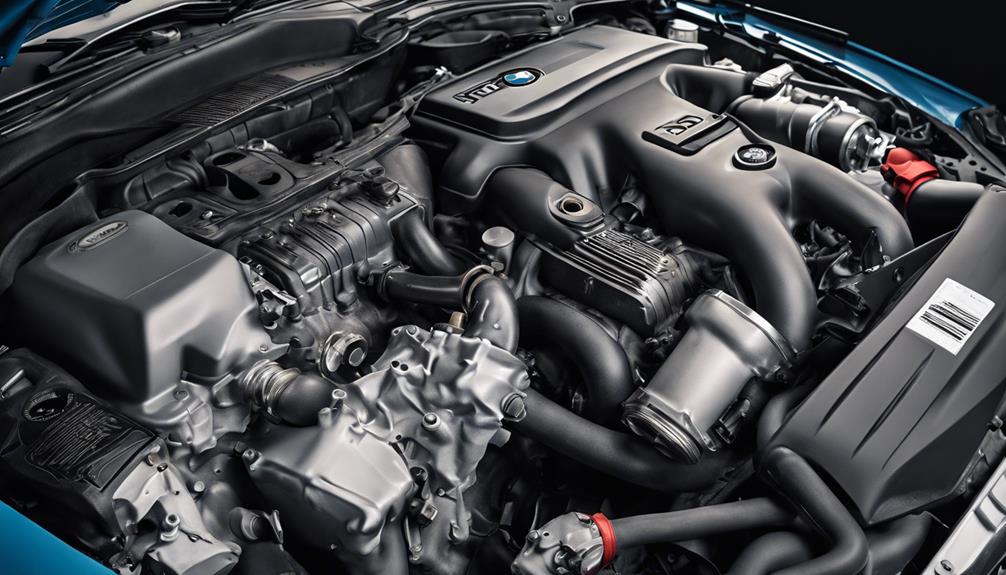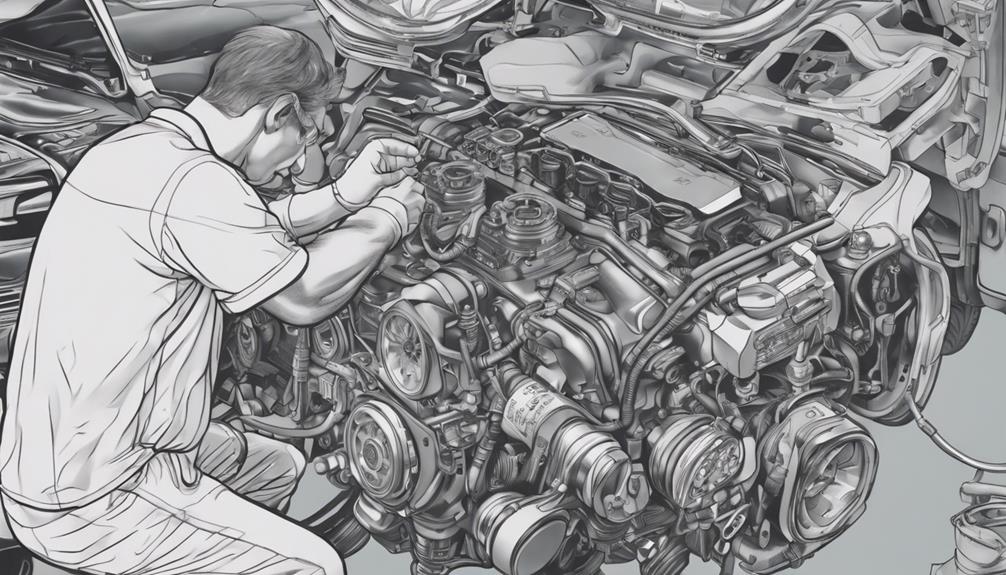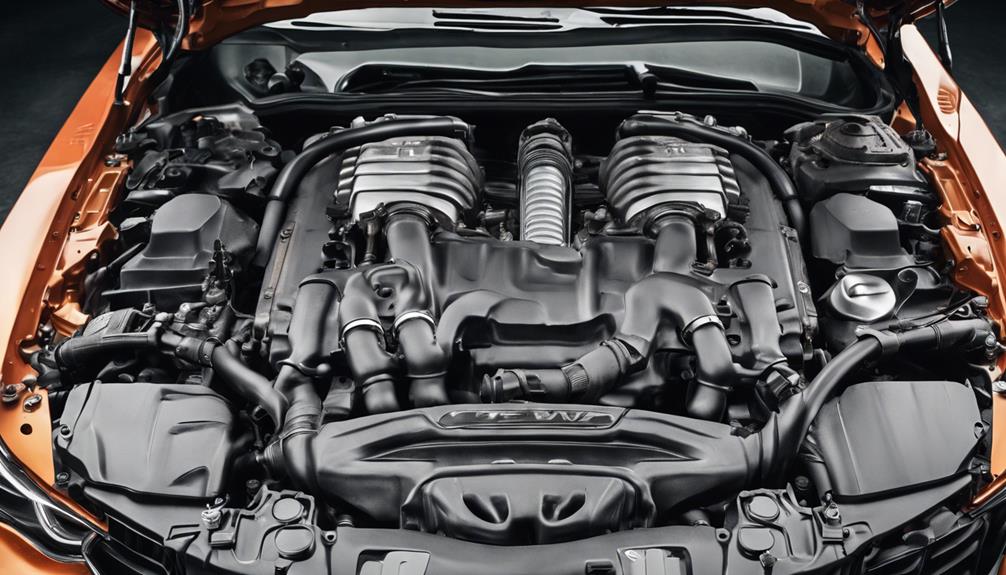Hey there! Have you observed jerking or rough downshifts in your BMW Steptronic transmission? Problems like erratic shifting patterns, gear slippage, and harsh engagement can originate from various causes like worn clutch packs and low fluid levels. It's crucial to address these symptoms promptly to prevent further damage and guarantee a smooth driving experience. Uncover more insights into common transmission problems and their solutions to keep your BMW running smoothly.
Key Takeaways
- Jerking during gear changes is a common issue.
- Smooth shifting can be improved with manual or sport mode.
- Harsh downshifts may indicate the need for replacement parts.
- Regular maintenance can help avoid delayed shift response problems.
- Slipping issues like jerking movements require immediate attention.
Common Steptronic Transmission Issues
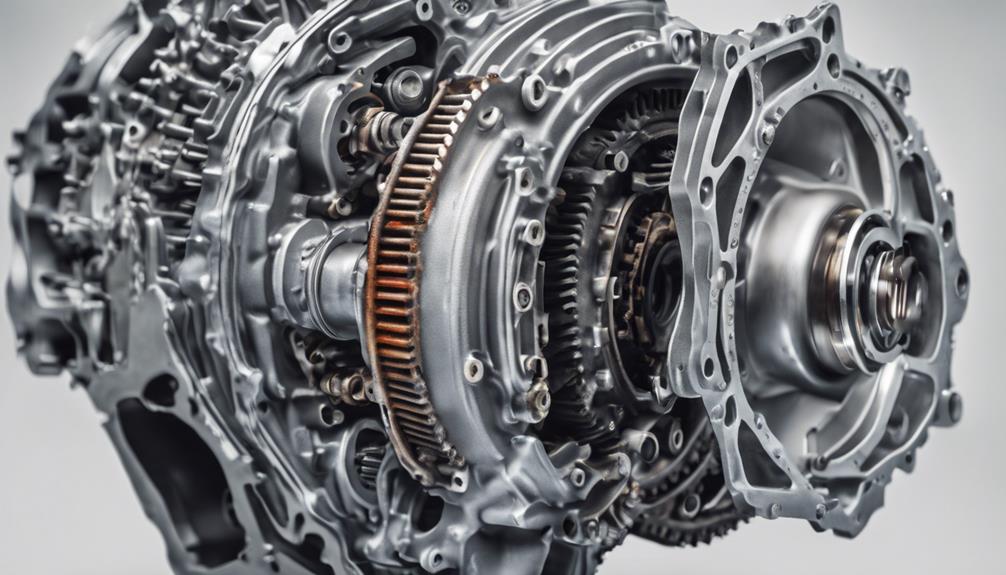
If you've ever felt your BMW Steptronic transmission jerking during gear changes, you're not alone in encountering this common issue. The Steptronic transmission, although known for its smooth shifting, can sometimes exhibit harsh downshifts and jerking motions, especially in certain models like the X5 30d and 330ci. To address these problems, replacement parts such as the guibo disc and center bearing may be necessary. However, before diving into costly repairs, consider driving in manual or sport mode, as this can often improve the overall performance and smoothness of gear changes in your BMW.
Being part of a community of BMW enthusiasts can also provide valuable support and advice when dealing with Steptronic transmission issues. Sharing experiences and seeking guidance from others who've faced similar problems can lead to effective solutions and a sense of belonging to a group that understands the intricacies of these transmissions. Remember, you're not alone in this journey to resolve common Steptronic transmission issues.
Erratic Shifting Patterns
Hey there, ready to shift gears and talk about some quirks in BMW steptronic transmissions?
Get ready for a rollercoaster ride of gear slippage and delayed shift responses that might keep you on your toes.
Buckle up as we unravel the mysteries behind these erratic shifting patterns!
Gear Slippage
Gear slippage in BMW Steptronic transmissions manifests as erratic shifting patterns, causing hesitation and inconsistency in gear changes. When your transmission experiences gear slippage, you may notice sudden RPM spikes, delayed engagement, and a sense of gears not fully engaging. This issue can lead to decreased performance, lower fuel efficiency, and potential damage to transmission components over time.
Diagnostic tools are vital for identifying the underlying causes of gear slippage, which can range from worn clutch packs to solenoid problems or internal mechanical failures. Promptly addressing gear slippage through professional diagnosis and repair is essential to prevent further damage and ensure your transmission performs at its best.
Delayed Shift Response
Experiencing delayed shift responses in BMW Steptronic transmissions can disrupt your driving experience, impacting performance and acceleration consistency. Erratic shifting patterns, a common consequence of this issue, can lead to a lack of power delivery and inconsistent acceleration, affecting your overall driving satisfaction. Factors like worn-out clutch packs, solenoid issues, or software glitches often contribute to these delays. Promptly addressing delayed shift responses through diagnostic checks and necessary repairs is essential to prevent further transmission damage. Regular maintenance, including fluid checks and software updates, plays an important role in avoiding or mitigating delayed shift response problems in BMW Steptronic transmissions.
| Symptoms of Delayed Shift Response | Importance of Maintenance |
|---|---|
| Erratic Shifting Patterns | Regular Fluid Checks |
| Lack of Power Delivery | Software Updates |
| Inconsistent Acceleration | Diagnostic Checks |
Transmission Slipping Problem
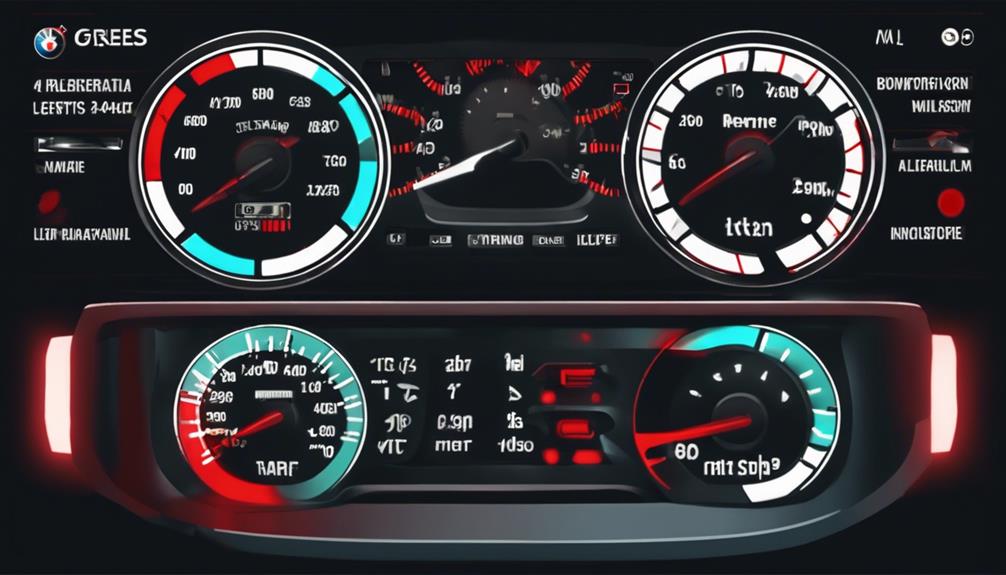
Feeling your BMW's transmission slipping? Watch out for those telltale signs like RPM fluctuations and delayed acceleration.
The culprit could be worn-out clutch plates, low transmission fluid, or internal mechanical issues.
Don't ignore the warning signals – get your BMW checked by a certified technician to prevent further gearbox damage.
Signs of Slipping
If you've ever noticed your BMW feeling like it has a mind of its own on the road, slipping during gear changes could be the culprit. Transmission slipping in BMW steptronic systems can lead to decreased fuel efficiency and potential damage to the transmission components. Common signs of slipping include the sensation of the vehicle 'shifting on its own' without driver input or abrupt jerking movements during gear changes. This issue often occurs due to worn clutch packs, low transmission fluid levels, or internal mechanical problems within the transmission assembly. Immediate attention to slipping problems is vital to prevent further damage and guarantee the safe operation of your vehicle.
| Signs of Slipping | Description |
|---|---|
| Delayed Gear Engagement | Revving engine without acceleration. |
| Abrupt Jerking Movements | Vehicle 'shifting on its own'. |
| Decreased Fuel Efficiency | Potential damage to components. |
| Internal Mechanical Issues | Worn clutch packs. |
| Transmission Fluid Levels | Low levels can cause slipping. |
Causes of Slippage
Slippage in BMW steptronic transmissions can stem from a variety of factors, including worn-out clutch packs, low fluid levels, internal pressure loss, faulty solenoids, and software calibration issues. When your transmission experiences slippage, it can be a real headache. Here are some possible reasons to contemplate:
- Worn-out clutch packs: Over time, these essential components can deteriorate, leading to slipping problems.
- Low transmission fluid levels: Ensuring your transmission fluid is at the appropriate level is vital to prevent slippage.
- Internal pressure loss: Any decrease in pressure within the transmission system can result in undesired slippage during gear changes.
- Faulty solenoids: These small but powerful components play a significant role, and if they're defective, slippage can occur unexpectedly.
Harsh Engagement Symptoms
When experiencing severe engagement symptoms in your BMW Steptronic transmission, you may notice jolting during gear shifts and drivetrain jolting particularly during downshifting. This can be irritating, causing a rough ride and potential damage to your vehicle. To help you better understand these symptoms, take a look at the table below:
| Severe Engagement Symptoms | Description |
|---|---|
| Jolting during gear shifts | Sudden movements when changing gears. |
| Drivetrain jolting | Feeling a strong jolt during downshifting. |
| Severe downshifting | Rough changes, especially in auto mode. |
| Excessive downshifting | Common issue when coasting downhill. |
| Mitigation strategies | Try manual or sport mode for smoother shifts. |
Fluid Change Importance
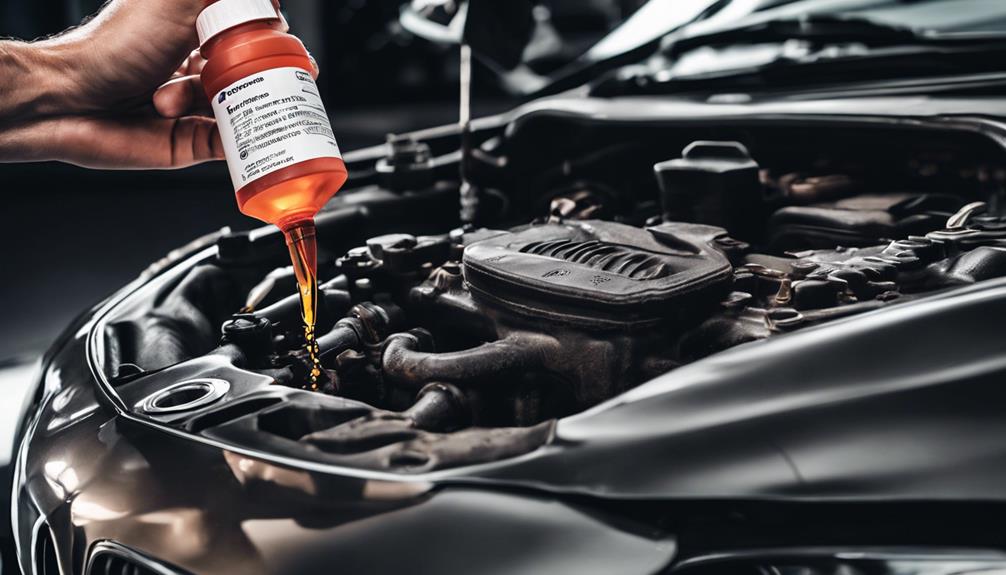
Experiencing severe engagement symptoms in your BMW Steptronic transmission can emphasize the crucial importance of regular fluid changes to ensure peak performance and longevity. Here are some essential points to take into account:
- Transmission Fluid Changes: Regularly changing the transmission fluid helps maintain the health and performance of your BMW's steptronic transmission.
- Wear and Tear: Old or degraded transmission fluid can lead to increased wear and tear on internal components, potentially causing transmission problems.
- Maintenance: Fresh transmission fluid lubricates moving parts, maintains proper hydraulic pressure, and prevents overheating in the transmission system.
- Longevity: Neglecting transmission fluid changes can result in decreased shifting quality, increased risk of transmission failure, and costly repairs.
Software Update Necessity
Securing your BMW's steptronic transmission receives timely software updates is vital for enhancing performance and addressing potential issues. Software updates play a pivotal role in optimizing the functionality of Steptronic transmissions. These updates aren't just about fixing bugs; they can greatly enhance your driving experience by improving shift quality, responsiveness, and overall transmission performance.
BMW periodically releases these updates to address known issues and ensure your vehicle operates at its best. By updating the EGS (Electronic Control Unit) with the latest software, you can effectively resolve common transmission problems and prevent future complications. Neglecting these software updates can result in persistent transmission issues that may impact your driving experience.
Stay ahead of the game and keep your BMW in top shape by prioritizing software updates for your Steptronic transmission to enjoy smoother rides and improved performance.
Costly Repair Considerations
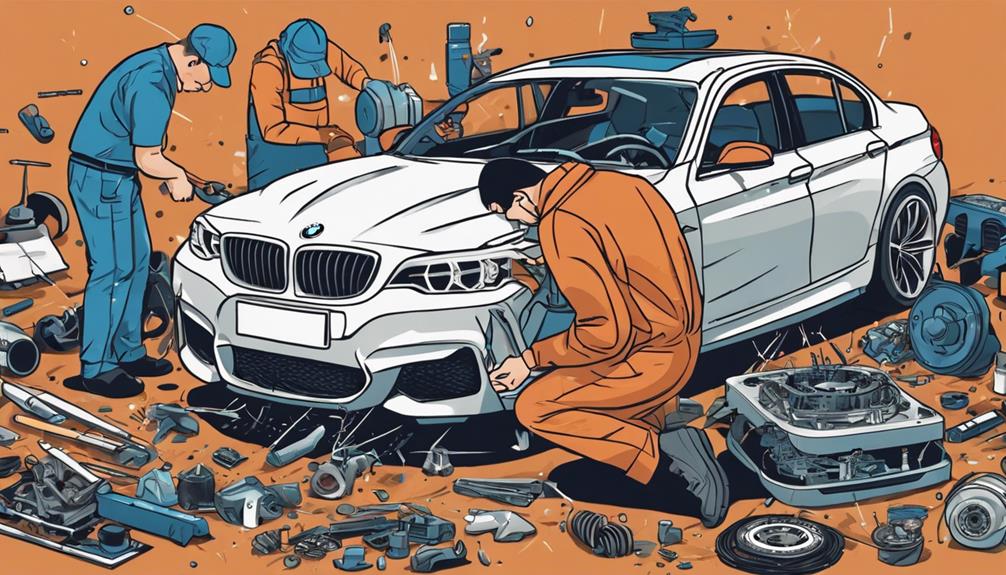
Considering the potential repair costs ranging from $3,000 to $5,000 for BMW steptronic transmission problems, financial planning becomes essential for owners facing these issues. When it comes to transmission repairs, here are some quirky yet practical considerations to keep in mind:
- Manual transmission repairs might offer a slight breather for your wallet compared to the often pricier automatic transmission fixes.
- The looming specter of new transmission costs can send shivers down any BMW owner's spine, leading to understandable concerns about potential replacement expenses.
- Opting for a new car to dodge those costly transmission repairs may seem like a quick fix, but it brings its own set of financial implications and dilemmas.
- Embracing the world of used transmissions could be your ticket to a more budget-friendly solution for tackling those pesky BMW steptronic transmission woes.
When it comes to exploring the maze of transmission problems, remember that you're not alone in your quest for cost-effective solutions like investigating used transmissions.
Minor Fixes Vs. Major Repairs
For those encountering BMW steptronic transmission problems, distinguishing between minor fixes and major repairs can be a pivotal decision-making factor in resolving issues effectively. Addressing minor issues promptly through minor fixes can often prevent them from escalating into major repairs, potentially saving you both time and money. Below is a table outlining the differences between minor fixes and major repairs for BMW steptronic transmission problems:
| Minor Fixes | Major Repairs | Forum |
|---|---|---|
| Software Updates | Clutch Replacements | Component Replacements |
| Fluid Changes | Gearbox Overhauls | Severe Issues |
| Fault Code Readings | Component Checks |
Understanding the nuances between these categories can aid in determining the appropriate course of action when facing transmission issues. While minor fixes like software updates and fluid changes can often be handled efficiently, major repairs such as clutch replacements or gearbox overhauls may require professional intervention. Regular maintenance and timely addressing of minor problems can help in avoiding costly major repairs in the long run.
Prompt Addressing for Prevention
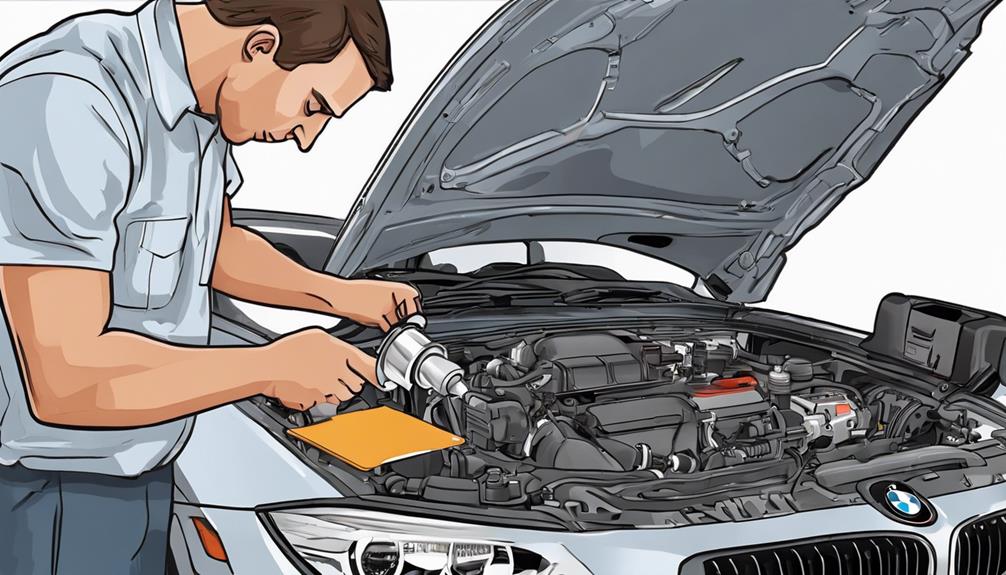
To stay ahead of potential BMW steptronic transmission issues, promptly addressing any emerging problems is key to preventing costly repairs down the road. Keeping a close eye on your vehicle's transmission system can save you from headaches and hefty bills. Here are some quirky yet practical tips for preventing BMW steptronic transmission troubles:
- Regular Check-ups: Just like visiting the doctor for your health, routine maintenance checks for your BMW transmission can catch issues early.
- Fluid Care: Monitoring the transmission fluid levels and quality is like giving your car a rejuvenating drink to keep it running smoothly.
- Professional Insight: When your transmission starts acting up, don't play detective. Seek help from experts who can diagnose and address the problem effectively.
- Proactive Measures: Stay on top of software updates and fluid changes to give your BMW steptronic transmission the care it deserves.
Frequently Asked Questions
Is the BMW Steptronic Gearbox Reliable?
Yes, the BMW Steptronic gearbox is generally reliable. Regular maintenance like fluid changes can extend its lifespan. However, around 100k-120k miles, issues may arise. Following maintenance schedules diligently helps prevent problems.
Are BMW Known for Transmission Problems?
You betcha, BMWs have had their fair share of transmission troubles. Some models, like the X5 30d and 330ci, have been known to act up. Keep an eye out for those gremlins!
What Does BMW Steptronic Mean?
Steptronic, in BMW terms, means you get the best of both worlds – automatic convenience and manual control without a clutch pedal. It's like having your cake and eating it too, giving you a smooth, engaging driving experience.
What Is the Difference Between BMW DCT and Steptronic?
When comparing BMW DCT and Steptronic, DCT offers lightning-fast gear changes for sporty performance, while Steptronic focuses on smooth automatic shifts with manual control options. Choose based on your driving style, be it spirited or relaxed.
Conclusion
So there you have it, folks! When it comes to BMW Steptronic transmission problems, it's always best to address issues promptly to prevent costly repairs down the line.
From erratic shifting patterns to harsh engagement symptoms, keeping an eye on your transmission's health is key.
Remember, a fluid change and software update can go a long way in maintaining the smooth operation of your transmission. Stay on top of those minor fixes to avoid major headaches later on!






